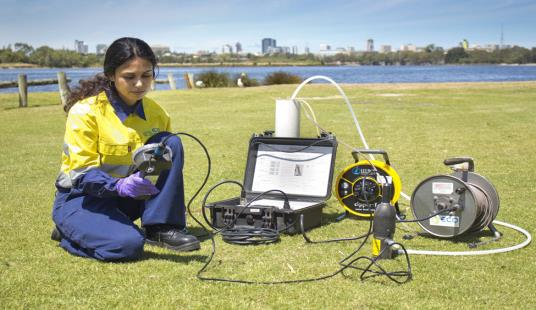COURSE OVERVIEW
HE1864 : Conduct of Operations & Operational Discipline

OVERVIEW
| COURSE TITLE | : | HE1864 : Conduct of Operations & Operational Discipline |
| COURSE DATE | : | Aug 05 - Aug 08 2024 |
| DURATION | : | 4 Days |
| INSTRUCTOR | : | Mr. John Burnip |
| VENUE | : | Istanbul, Turkey |
| COURSE FEE | : | $ 5000 |
| Request For Course | ||
Course Description
This course designed to provide participants with a detailed and up-to-date overview of Conduct of Operations and Operational Discipline. It covers the basic COO/OD concepts and implement the COO/OD systems; the relationship of other management system frameworks including the benefits and evolution of COO/OD systems; the leadership’s role and commitment, achieve greatness with COO/OD and identify leadership’s role in instituting COO/OD; the acceptable limits, consistently enforce expectations and monitor performance data; the status and progress, sustain performance and consider the impact of a catastrophic event; the COO/OD across a global workforce and identify human behavior issues and human errors.
Further, the course will also discuss the COO/OD systems prevent and mitigate human errors and recognize the relationship between COO/OD and other human performance tools; the behavior-based programs, antecedent-behavior-consequence programs and human performance technology approach; the everyone involved in human factors and measure human factors metrics; the key attributes of COO and process safety management; COO principles to process safety management systems and COO foundations and risk significance; the standards supporting the organization’s mission and provide the resources and time necessary to complete tasks within standards.
During this course participants will learn to competency across the organization and competency across the organization; the authority/accountability, carryout communications, logs and records training, skill maintenance, and individual competence and compliance with policies and procedures; the safe and productive work environments, aids to operation, intolerance of deviations, task verification, supervision and support; the worker fatigue, safe operating limits, and equipment monitoring and condition verification ; the organizational attributes like leadership, team building, and compliance with procedures; the individual attributes including knowledge, commitment, awareness, and attention to detail; the effective COO/OD Systems, develop a plan and set consistent performance expectations; the management leadership and commitment as well as long term sustainability and consistency; the milestone and push to achieve them, implement the plan and start with the benefits; the performance standards and adapt the approach to site specific conditions; the progress using metrics, audit results, incident investigations, and other tools; and the current status and gasps common implementation problems, prioritize improvement opportunities and apply different roles within the organization.
Further, the course will also discuss the COO/OD systems prevent and mitigate human errors and recognize the relationship between COO/OD and other human performance tools; the behavior-based programs, antecedent-behavior-consequence programs and human performance technology approach; the everyone involved in human factors and measure human factors metrics; the key attributes of COO and process safety management; COO principles to process safety management systems and COO foundations and risk significance; the standards supporting the organization’s mission and provide the resources and time necessary to complete tasks within standards.
During this course participants will learn to competency across the organization and competency across the organization; the authority/accountability, carryout communications, logs and records training, skill maintenance, and individual competence and compliance with policies and procedures; the safe and productive work environments, aids to operation, intolerance of deviations, task verification, supervision and support; the worker fatigue, safe operating limits, and equipment monitoring and condition verification ; the organizational attributes like leadership, team building, and compliance with procedures; the individual attributes including knowledge, commitment, awareness, and attention to detail; the effective COO/OD Systems, develop a plan and set consistent performance expectations; the management leadership and commitment as well as long term sustainability and consistency; the milestone and push to achieve them, implement the plan and start with the benefits; the performance standards and adapt the approach to site specific conditions; the progress using metrics, audit results, incident investigations, and other tools; and the current status and gasps common implementation problems, prioritize improvement opportunities and apply different roles within the organization.
TRAINING METHODOLOGY
This interactive training course includes the following training methodologies:
LecturesPractical Workshops & Work Presentations
Hands-on Practical Exercises & Case Studies
Simulators (Hardware & Software) & Videos
In an unlikely event, the course instructor may modify the above training methodology for technical reasons.
VIRTUAL TRAINING (IF APPLICABLE)
If this course is delivered online as a Virtual Training, the following limitations will be applicable:
| Certificates | : | Only soft copy certificates will be issued |
| Training Materials | : | Only soft copy materials will be issued |
| Training Methodology | : | 80% theory, 20% practical |
| Training Program | : | 4 hours per day, from 09:30 to 13:30 |
RELATED COURSES

HE0758(KN1) : Certified Confined Space & Rope Rescue in Accordance with NFPA 1670 & 1006
- Date: Apr 06 - Apr 10 / 3 Days
- Location: Kuwait City, Kuwait
- Course Details Register

HE0625 : Food Safety Management (ISO 22000:2005) Policies, Accreditation, Documentation & Auditing
- Date: Apr 06 - Apr 10 / 3 Days
- Location: Dubai, UAE
- Course Details Register

HE0002S5 : Certified HAZOP Leader: Advanced Process Hazard Analysis (PHA) Methods & Leadership (HAZOP, What-if, FMEA)
- Date: Apr 06 - Apr 10 / 3 Days
- Location: Kuwait City, Kuwait
- Course Details Register

HE0260 : Certified Environmental Impact Assessment Professional (CEIAP)
- Date: Apr 06 - Apr 10 / 3 Days
- Location: Kuwait City, Kuwait
- Course Details Register
